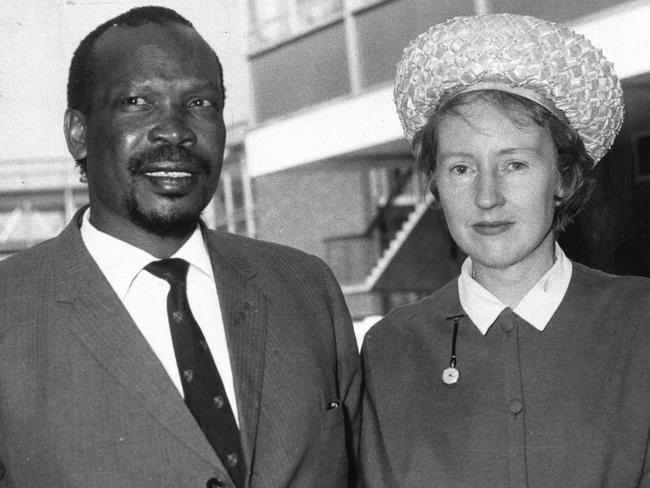As always thanks very much for all those who attended the Session on the 26th October 2024, I really enjoyed the fun and laughter celebrating and learning about Black history is so important, and it’s fantastic that the session brought people together in such a positive way. It’s always great to see new faces at events like these. Welcome to all the new attendees! Remember, sharing is caring, so let’s keep spreading the word and building our community. Below is a short reminder of some individuals who have played a part in shaping our community and we discussed on the day.
The London Borough of Croydon has uniquely woven into its fabric a rich tapestry of stories, accomplishments, and cultural heritage that highlights the contributions of the Black community. This year's celebration is not just about remembrance but also about recognizing the profound influence individuals and groups have had on Croydon's history and beyond. From pioneering police officers to influential musicians, let us explore some remarkable figures and entities that have shaped this vibrant community.

Sislyn Fay Allen: A Trailblazer in Law Enforcement One of Croydon’s most significant figures has to be Sislyn Fay Allen, who etched her name in history as the first Black female police officer in the UK. Joining the Metropolitan Police in 1973, Allen faced numerous challenges in an institution that was predominantly white and male. Her courage and resilience opened doors for future generations of Black women in law enforcement, and she served as a beacon of representation and leadership. Celebrating her story encourages not only recognition of diversity within the police force but also the ongoing efforts required to promote equality in all professions.

Stormzy: Croydon is also famously home to the influential rapper Stormzy, an artist and activist whose impact goes beyond music. With his debut album "Gang Signs & Prayer," Stormzy captivated audiences and showcased the struggles and triumphs of the Black community. His candid discussions about racism, mental health, and social justice have sparked conversations across the UK. Stormzy made history in 2019 by becoming the first black British solo artist to headline Glastonbury. His performance on the Pyramid Stage was a significant moment, highlighting issues such as racial inequality and knife crime in the UK. Additionally, his philanthropic efforts, including funding scholarships for Black students, underscore his commitment to uplifting future generations. Stormzy's journey to international stardom serves as an inspiration for many young people today.

Desmond Dekker: Reggae Pioneer The rhythms of reggae music have roots in the rich cultural heritage of the Caribbean, and Desmond Dekker was one of its earliest ambassadors in the UK. A resident of Croydon, Dekker's hit songs, including “Israelites,” brought attention to the challenges faced by the Black community in Britain during the 1960s. His work not only entertained but also educated listeners about the social injustices prevalent during his time. Celebrating Dekker during Black History Month serves as a reminder of the powerful connection between music and activism.

Samuel Coleridge-Taylor: A Musical Luminary Samuel Coleridge-Taylor was a celebrated composer and conductor whose works gained acclaim across Europe in the early 20th century. His contributions to classical music were groundbreaking, particularly as a man of mixed heritage during a time when opportunities for Black musicians were scarce. Coleridge-Taylor’s compositions often drew upon African themes, illustrating a rich cultural narrative that resonates even today. Celebrating his legacy in Croydon emphasizes the importance of classical music and the contributions of people of color within that sphere.

Seretse Khama: Another key figure the first President of Botswana who studied law at the London School of Economics. His remarkable journey transitioned from exile in the UK due to his marriage to a British woman, Ruth Williams, to becoming a pivotal leader who advocated for African self-governance. Khama’s ideals of democracy, justice, and development tremendously influenced Botswana’s post-colonial trajectory. He lived in Croydon during his exile in the early 1950s. He and his wife, Ruth Williams Khama, settled in Addiscombe, Croydon, after being banned from returning to Botswana by the British government. They lived there with their children until they were allowed to return to Botswana in 1956. Honoring his story during Black History Month in Croydon illustrates the importance of leadership and resilience against adversity. Below is a link of an interview with Seretse khama.
Ralph and Otho Vignalë: The British West Indies Regiment: A Legacy of Valor The British West Indies Regiment played a vital role during both World Wars, with many soldiers from the Caribbean serving valiantly in different capacities. Their bravery and sacrifices often went unrecognized but are a crucial part of British military history. Recognizing their contributions in Croydon reinforces the narrative of shared history and respect for those who fought for freedom and justice.
Two Trinidadian brothers living in Croydon, Ralph and Otho Vignalë, joined the British Army during the First World War. Sons of a cocoa plantation owner from Arima, County of St. George, Trinidad, they are recorded as living together at 17 Amberley Grove, Addiscombe, in the 1911 census. Their lives give us an insight into the experiences of men from the British West Indies and other colonies during and after the First World War.
The story of the two Croydon-based, Trinidadian-born brothers who lived incredible lives was researched and written by Samuel Ali. Originally published in The Croydon Citizen, Tuesday 28th August, 2018. This is an excellent article please read and share.
Gee Bernard: is a prominent figure in Croydon, deeply respected for her contributions to the local community and the broader discourse on Black history and culture. A trailblazer in her own right, Gee Bernard has pursued her passion for advocacy to uplift marginalized voices and inspire future generations. Gee Bernard, whose full name was Gwendolyn Enid Bernard, was a pioneering figure in British politics. Born in 1934 in Jamaica, she moved to England and became the first Black Councillor for Croydon in London, representing the Labour Party. Bernard was also a dedicated social worker and an influential community leader. She founded the Croydon African Caribbean Family Association in 1993 and served as a Councillor for 16 years. In 1971 Gee attended her first Labour Party meeting and became a paid member of the party. Through her membership she learnt about trade unions, school governing bodies and social services. She also set up the first Black forum in London, a place where members of the Black community could come together and address concerns specifically affecting them. She moved from Jamaica to Britain in 1961 and has six children, fourteen grandchildren and three great-grandchildren. A social worker by profession. In 1993 she established the Croydon African Caribbean Family Organisation for the development of the Black community. She passed away on December 6, 2016. Below is a link to an interview with Gee please read and share so that her achievements are never forgotten. https://collections.blackculturalarchives.org/repositories/2/archival_objects/1784
Embracing Diversity and Heritage As Croydon honors the stories and legacies of these influential figures during Black History Month, it unearths a narrative that resonates with the values of diversity, resilience, and aspiration. Each of these individuals has left an indelible mark not just on Croydon but on British society as a whole. It is important that the legacy continues and we never forget the contributions made both past and present.









4 Comments
Throughly enjoyed the Black History month.
Put me to shame really – only knew the obvious ones ie Stomzy Desmond Decker.
Never taught black History at school! Should be compulsory from primary.
10 out of 10!
I am truly inspired to keep keeping on with the updated info for 2024 black historyonth
Thank you so much for your comments, knowledge if power!
Thank you so much for your kind words and I agree this should be part of the school curriculum!